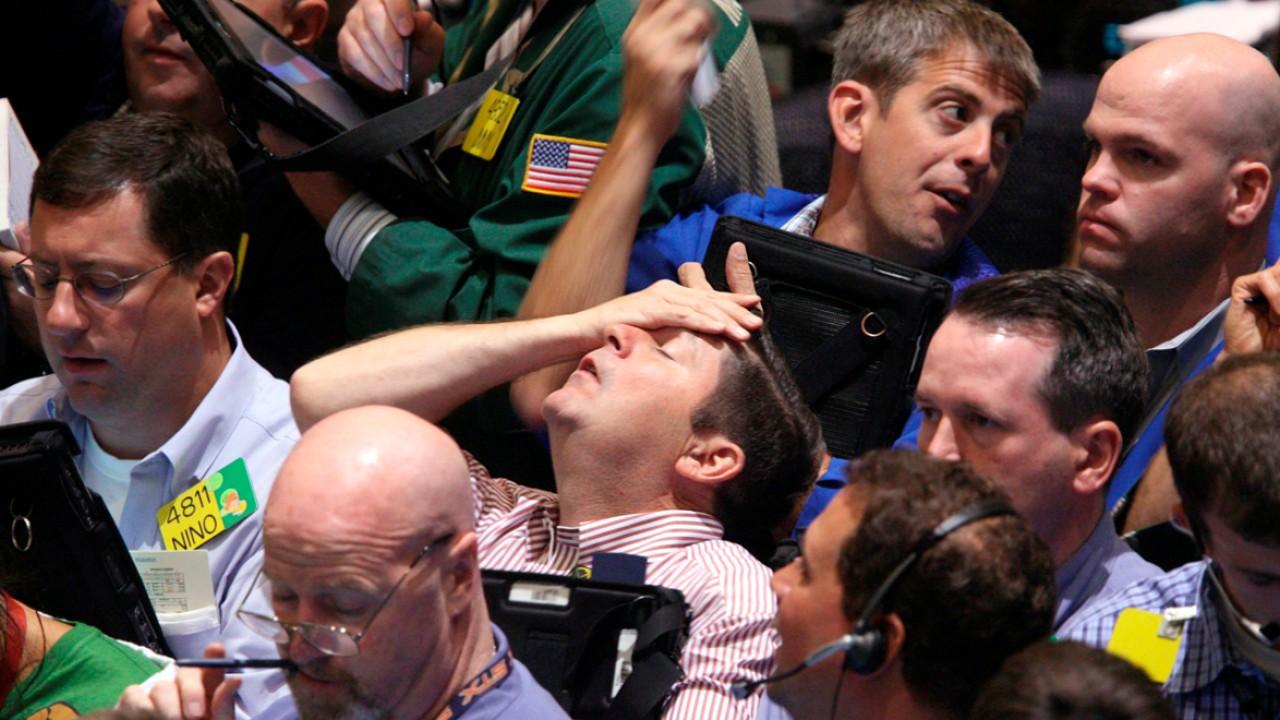Will coronavirus really cause a recession? What telltale signs to watch
These indicators are the economic bellwethers to pay attention to when trying to predict a recession
Fears of an impending recession spiked on Monday as U.S. markets suffered their worst drop since 2008, a result of mounting coronavirus fears and a price war over oil that swung major indexes dangerously close to the edge of a bear market.
The Dow Jones Industrial Average closed more than 2,000 points, or 7.8 percent, lower on Monday, it’s worst one-day percentage drop since the financial crisis, while the S&P 500 and Nasdaq Composite were lower by 7.9 percent and 7.2 percent, respectively.
Stocks have gyrated in recent weeks as the coronavirus, which causes a disease known as COVID-19, has quickly spread around the world. The virus has killed more than 4,000 people, with close to 116,000 cases reported worldwide, mostly in China, according to a database published by Johns Hopkins University. There have been a total of 761 confirmed cases of coronavirus in the United States and 26 deaths.
WHAT TRIGGERS AN ECONOMIC RECESSION?
Still, whether the events are truly foreshadowing a recession within the next year or merely a concerning contraction remains uncertain.
According to a recent Bank of America note to clients, these are the telltale metrics to watch for signs that foreshadow economic calamity.
- U.S. consumer strength fades and falls below 100
- Jobless claims surpass 250,000
- Lower U.S. mortgage purchasing activity
- Likelihood of President Trump being reelected dips
- Small business confidence falls below 100
The U.S. consumer is the “key to weather global recession measured in months not weeks,” Bank of America strategist Michael Hartnett wrote in a note to clients on Thursday.
The Consumer Board’s consumer confidence index, which is updated monthly, shows that consumer confidence improved slightly in February, rising to a reading of 130.7, the highest point since August. Consumer spending, which accounts for about two-thirds of U.S. GDP, has been the driving force behind the record-long economic expansion, now in its 11th year.
It remained the bright spot even in the midst of the more than year-long U.S.-China trade war, which caused similar volatility in the stock markets.
Analysts at the time, however, cautioned that the survey came too early to gauge how the coronavirus outbreak would impact consumers.
A hit to the labor market could also thrust the economy into a recession. In February, employers added a staggering 273,000 jobs, surging past expectations, while unemployment fell back to 3.5 percent, a half-century low. But markets shrugged off the report, as companies, by and large, were surveyed about their payroll before the virus began to impact growth.
HOW LONG DOES A RECESSION LAST?
Should jobless claims climb over 250,000, it could mean a recession is coming, according to Hartnett. At the beginning of March, the number of Americans filing for unemployment benefits fell, suggesting the labor market was on solid footing, despite the COVID-19 outbreak. Initial claims for state unemployment benefits fell 3,000 to a seasonally adjusted 216,000 for the week that ended Feb. 29.
Hartnett also said that fewer people filing for mortgage applications would dent the economy. In the most recent survey published by the Mortgage Bankers Association Purchase index, which is what Bank of America uses, mortgage purchase applications for single-family homes increased 15.1 percent from the previous week.
The final metric that Bank of America is watching is Trump’s reelection odds. According to the metric used by the bank, Oddscheck.com, Trump’s likelihood of getting reelected fell to 58 percent from 62 percent on Feb. 20.
GET FOX BUSINESS ON THE GO BY CLICKING HERE




















